Best Hepatology Hospitals in Bengaluru
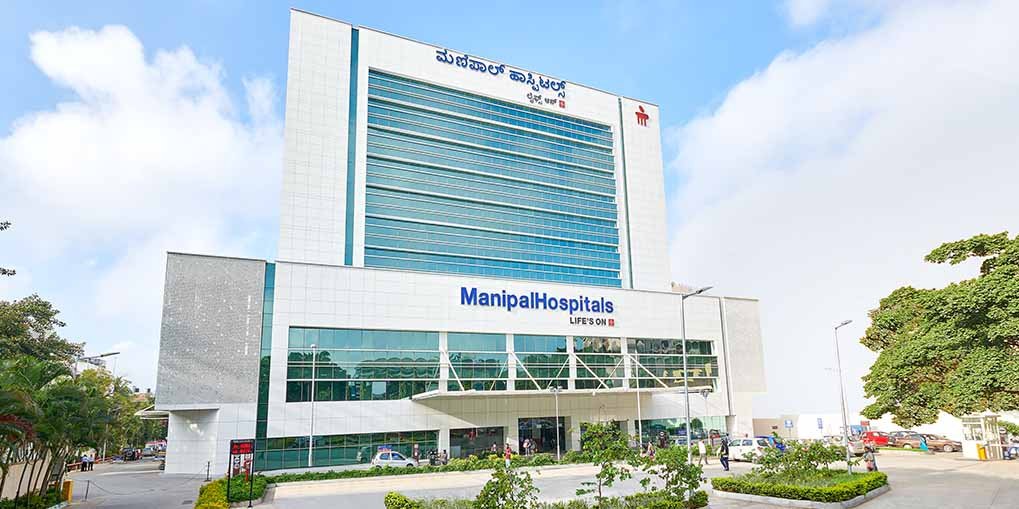
Manipal Hospital
Old Airport Road, BengaluruMulti-Specialty Hospital
98, Kodihalli
8669 KM's away
Specialities
50Doctors
151Beds
650








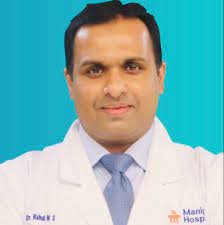

Aster Cmi Hospital
Hebbal, BengaluruMulti-Specialty Hospital
No. 43/2, New Airport Road, NH.7, Hebbal, Sahakara Nagar
8664 KM's away
Specialities
33Doctors
92Beds
500







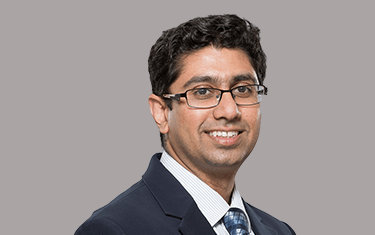


Apollo Hospital
Bannerghatta Road, BengaluruMulti-Specialty Hospital
154/11, Bannerghatta Road, Amalodbhavi Nagar, Panduranga Nagar
8664 KM's away
Specialities
29Doctors
81Beds
295
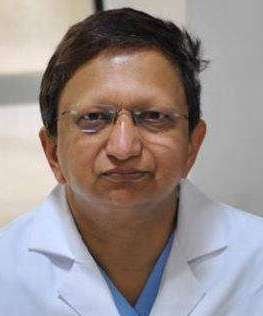


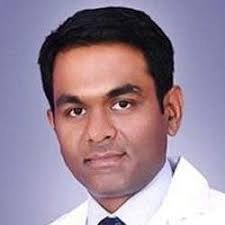
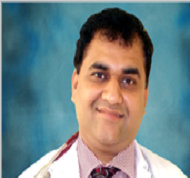



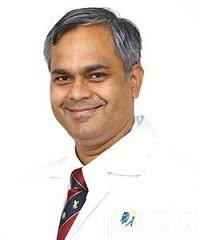

Fortis Hospital Bangalore
Bannerghatta Road, BengaluruMulti-Specialty Hospital
154/9
8664 KM's away
Specialities
33Doctors
69Beds
400










Vikram Hospital
Millers Road, BengaluruMulti-Specialty Hospital
71/1, Vasanth Nagar
8664 KM's away
Specialities
38Doctors
53Beds
225










Columbia Asia Hospital
Yeshwanthpur, BengaluruMulti-Specialty Hospital
26/4, Brigade Gateway, Malleshwaram West
8671 KM's away
Specialities
25Doctors
26Beds
160











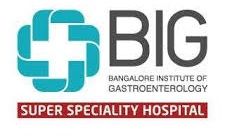
Bangalore Institute Of Gastroenterology
Jayanagar, BengaluruMulti-Specialty Hospital
34, 100 Feet Road, Ashoka Pillar Road, 2nd Block
8663 KM's away
Specialities
19Doctors
14Beds
100










Bms Hospital
Basavanagudi, BengaluruMulti-Specialty Hospital
Number 618, Sri Mallikarjuna Swamy Temple Street, N. R. Colony
8661 KM's away
Specialities
10Doctors
7Beds
8




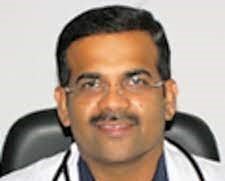


Tatkshana Ayurveda Hospital
Yeshwanthpur, Bengaluru45 / 13, Tumkur Road
8660 KM's away
Specialities
1Doctors
2Beds
20


Health Cottage Hospital
Ulsoor, BengaluruMulti-Specialty Hospital
289, Cambridge Layout, 1st Cross, Indiranagar
8668 KM's away
Specialities
6Doctors
2Beds
20

Top 10 Hepatology Hospitals Near Bengaluru
| Hospital | Rating | Doctors | Location |
|---|---|---|---|
| Manipal Hospital | ---- | 151151 | Old Airport Road, Bengaluru |
| Aster Cmi Hospital | ---- | 9292 | Hebbal, Bengaluru |
| Apollo Hospital | ---- | 8181 | Bannerghatta Road, Bengaluru |
| Fortis Hospital Bangalore | ---- | 6969 | Bannerghatta Road, Bengaluru |
| Vikram Hospital | ---- | 5353 | Millers Road, Bengaluru |
| Columbia Asia Hospital | ---- | 2626 | Yeshwanthpur, Bengaluru |
| Bangalore Institute Of Gastroenterology | ---- | 1414 | Jayanagar, Bengaluru |
| Bms Hospital | ---- | 77 | Basavanagudi, Bengaluru |
| Tatkshana Ayurveda Hospital | ---- | 22 | Yeshwanthpur, Bengaluru |
| Health Cottage Hospital | ---- | 22 | Ulsoor, Bengaluru |
Questions & Answers on "Hepatology" (150)
IMPRESSION: Changes of cirrhosis of liver. Mild splenomegaly. Prominent portal vein. Moderate ascites Gallbladder calculus. Complex cyst in right kidney.
Male | 46
Cirrhosis may be a long-term result of damage to the liver, which is a result of heavy alcohol consumption or certain infections. It can come with signs such as a person being tired, having an enlarged tummy, and having yellow skin. Treatment consists of dealing with the main issue and possibly a liver transplant as well. Remember to come back to your hepatologist for more tests and recommendations.
Answered on 30th July '24
Read answer
Doctor I'm sufferings from HBV with respect again sir I need cure how much Thank you
Male | 23
Hepatitis B virus (HBV) is a virus that can make you feel extremely ill. You might experience extreme fatigue, yellow discoloration of the eyes, and stomach pain. HBV is transmitted via blood and other body fluids. A hepatologist should be consulted for information. Medicines can assist in the treatment of HBV, and the good management of your health can lead to the improvement of your health.
Answered on 6th Aug '24
Read answer
Hello! I am a 42-year-old male who was diagnosed with hepatitis B in my early 20s. Can I safely take collagen supplements now, and if so, what dosage would be appropriate?
Male | 42
I would encourage you to pay a visit to the hepatologist and get yourself the right advice about the possible safety and suitability of the collagen supplement while also acquiring the ideal dose for you.
Answered on 23rd May '24
Read answer
Hepatitaise b reoprt postive or not I am sandeep saxena from Mathura
Female | 32
You must know what possible symptoms to look for ‘fatigue, jaundice, and abdominal discomfort’ in order not to be misled by wrong conclusions. This is a disease primarily caused by a virus that affects the liver which is usually through contact with bodily fluids that are infected. One of the ways to handle this includes frequently checking your body function along with well-balanced food and using the right medicines for a long time. It is my strong belief that you should start off discussing your case with a healthcare provider for a thorough examination as well as a personalized prescription.
Answered on 27th Dec '24
Read answer
My father suffering from nonalcoholic steatohepatitis
Male | 53
This is a state where the liver gets fat-rich and thus there is inflammation. Symptoms can be tiredness, pain in your abdomen, and jaundice when the skin and eyes go yellow. To help, he will likely have to eat healthy food, exercise, and avoid alcohol. These changes can help his liver to be intact.
Answered on 4th Nov '24
Read answer
Hi i have recently gotten a level of 104 ALT on a blood test and my mom is freaking out I really don't want to have anything serious and i'm really scared. Could it be because of my inactivity levels during the summer? I recently gained a lot of weight since I did not exercise in the summer and I am now 5'8 and 202 pounds.
Male | 18
You're worried about your ALT level being 104. ALT is a liver enzyme that can rise when there's a liver issue. Inactivity and weight gain can affect liver health, often leading to fatty liver, even without symptoms. The solution is regular exercise and a healthier diet. Taking care of your liver through a healthy lifestyle is key.
Answered on 13th Sept '24
Read answer
Alkaline phosphatase 160 and s.g.o.t 73
Male | 38
Elevated alkaline phosphatase and SGOT levels may indicate issues related to the liver, bones, or bile ducts. Common causes include liver disease, bone disorders, or certain medications. Symptoms to watch for include fatigue, jaundice, abdominal pain, or unusual bruising. It’s important to discuss these results with your healthcare provider, who can assess your overall health, recommend further tests if necessary, and provide guidance tailored to your situation.
Answered on 21st Jan '25
Read answer
My liver is damaged water is filling how can be treated
Male | 46
You might have a condition known as ascites; this occurs when the abdomen fills with fluid because of liver damage. This could be caused by alcoholism, hepatitis C, or non-alcoholic steatohepatitis. The way we treat it is by managing what caused your liver to become unhealthy in addition to drugs that decrease water retention and changes in diet plans. You should go see a hepatologist who can help you figure out what’s going on.
Answered on 16th Oct '24
Read answer
Sir meri mom ko pichle kuch dino se levar me problem hone ki wajh se jo bhi kha rahi hai bus womitting ho jati hai uski wajh se fevar bhi a jata hai sardi lagati hai zor se aur womitting ki wajh se khana bhi nhi kha pa rahi to weakness ho gyi plz suggest me
Female | 50
• Based on the complaints, your mother is suffering from a disease associated with the liver function.
• Any disruption in liver function that produces ailment which is referred to as liver disease. The liver is in charge of several vital activities in the body, and if it becomes ill or damaged, the loss of such functions can cause serious harm to the body. Hepatic disease is another name for liver disease.
• Along with fever, vomiting, loss of appetite and extreme fatigue, stomach tightness bloating, abdominal pain can also be seen in individuals with liver diseases.
• Further investigations and procedures will provide you with a clarity.
• Laboratory investigations include AST(aspartate aminotransferase), ALT(alanine transaminase), ALP(alkaline phosphatase) and GGT(gamma-glutamyl transpeptidase) Total Albumin, Lactic Dehydrogenase, Alpha protein, 5’nucleotide, mitochondrial antibody and PTT levels and procedures such as CT scan, MRI (for liver tissue damage) and biopsy (in case of chance of any cancerous growth).
• Infection, autoimmune liver illnesses such as cholangitis, Wilson's disease, cancer, alcoholic liver (due to alcohol overuse), non-alcoholic liver (due to excessive fat consumption), and drug-induced liver dysfunction are all possible causes of liver dysfunction.
• Lifestyle and diet changes can help in to reduce the further damage of liver.
• Consult a hepatologist for further evaluation and treatment.
Answered on 23rd May '24
Read answer
My husband got have HBV reactive in recent health check up, I just got hep b jab last year Jul 22. Do I have the immunity?
Male | 43
"Reactive" means positive and "immunity" depends on antibody levels. Your vaccination status is promising.
Answered on 23rd May '24
Read answer
I have noticed I can see my pulse in my stomach, and it’s worrying me. I have recently researched stuff about abdominal aortic aneurysms (because I have health anxiety) and I noticed people state that is one of the symptoms. I don’t have any other symptoms, and I know it’s normal to see your pulse in your stomach sometimes, but a lot of people say it’s visible if you’re skinny and have less abdominal fat. I’m not skinny and I’m wondering if it’s still normal? I’m really worried if it’s not.
Female | 18
an abdominal aortic aneurysm needs medical intervention, the condition itself should be carefully evaluated. If your symptoms worry you, please make an appointment with a vascular professional as soon as possible.
Answered on 23rd May '24
Read answer
My hepatitis b surface antigen Result is 4910.29
Male | 33
A result of 4910.29 indicates an elevated level of hepatitis B surface antigen, suggesting active infection. Common symptoms may include fatigue, jaundice (yellowing of skin or eyes), dark urine, and abdominal discomfort, although some individuals do not show any signs. This virus is primarily spread through contact with infected bodily fluids. It’s essential to consult a hepatologist for a thorough evaluation and suitable management options. They may recommend monitoring, antiviral medications, or lifestyle adjustments to support your liver health.
Answered on 23rd Jan '25
Read answer
In my liver test SGPT is 42 and GAMMA GT is 57 more than normal range
Female | 35
Since your SGPT and Gamma GT levels showed higher values, your liver test result is fine, but slightly elevated. It may be a sign of the disease process that is manifesting itself in the form of liver damage or inflammation. Consult with a hepatologist is important. They can propose the right therapeutic methods which suits your situation best.
Answered on 23rd May '24
Read answer
What are the complications faced from elevated liver enzymes post-gastric bypass?
Female | 38
Elevated liver enzymes are a common complication following gastric bypass surgery. Some patients may experience an increase in liver enzymes due to the rapid weight loss after surgery. However, it is important to monitor these levels. Check with your doctor.
Answered on 6th Dec '24
Read answer
I have my lft report iwant to know what is it
Female | 39
Liver function tests (LFT) measure various enzymes and substances in your blood to evaluate liver health. Abnormal results may indicate issues such as inflammation, infection, or damage. Common symptoms might include fatigue, jaundice, or abdominal discomfort. Possible causes range from viral infections to excessive alcohol consumption. It’s essential to interpret these results with a hepatologist, who can provide tailored advice and a treatment plan if necessary. Staying hydrated, maintaining a balanced diet, and avoiding alcohol can promote liver health.
Answered on 9th Feb '25
Read answer
Sir liver me hepatomegaly with multiple liver abscess hai
Male | 41
Your liver is enlarged, with pockets of infection - abscesses. This causes tiredness, fever, stomach pain. Bacteria spread, leading to infection. Treatment includes antibiotics killing bacteria. Drainage may remove abscesses. Following doctor's advice ensures full recovery.
Answered on 11th Sept '24
Read answer
How much is laparoscopic liver resection recovery time?
Male | 47
It could be 2-4 weeks.
Answered on 23rd May '24
Read answer
SGOT in liver test is 114 and bilirubin is 3.1
Male | 35
Elevated SGOT and bilirubin levels can indicate liver stress. Symptoms may include fatigue, jaundice (yellowing of the skin), or abdominal discomfort. Possible causes include liver inflammation, infections, or alcohol use. It’s essential to maintain a balanced diet, stay hydrated, and limit alcohol intake. Regular exercise can also support liver health. However, individual circumstances vary, so I recommend scheduling an appointment with your gastroenterologist. They can offer personalized guidance and conduct additional tests if necessary.
Answered on 23rd Mar '25
Read answer
Sir there is too much urine in jaundice or fatty liver
Male | 18
If your body is getting rid of the excess substances, jaundice or liver disease is likely the reason for the excess urine. Symptoms can be characterized by yellow-colored skin, pain in the stomach, and fatigue. The causes may be infections or dangerous lifestyles like smoking and drinking. To aid the body, hydrate yourself with water and eat a balanced diet.
Answered on 25th Oct '24
Read answer
Anti - HBs -Ag (antibody to Au antigen ) Results positive . That means what
Male | 26
You are diagnosed with antibodies that are against the hepatitis B surface antigen which means you are being protected from hepatitis B. It means your body has successfully fought off hepatitis B infection or you have been vaccinated against it. You may not have any symptoms, but it's important to keep your health by eating healthily, exercising, and avoiding alcohol to keep your liver in good shape. Ensure to get regular check-ups with your healthcare provider to monitor your health.
Answered on 19th July '24
Read answer
Get Free Assistance!
Fill out this form and our health expert will get back to you.